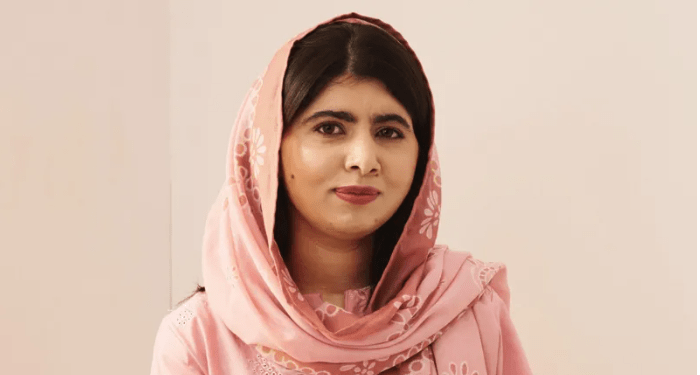
A bullet failed to silence her, now Malala Yousafzai is lending her voice to the women of Afghanistan.
In just a few years since the Taliban retook control of the country, women’s rights have been eroded to the point where even singing is banned.
Malala has a personal history with the Taliban across the border in Pakistan, after a gunman from the hardline Islamist group shot her as she sat on a school bus.
The speed of change in Afghanistan, if not the brutality, has surprised Malala, who since that near-fatal shooting in 2012 has campaigned for equality.
“I never imagined that the rights of women would be compromised so easily,” Malala tells BBC Asian Network.
“A lot of girls are finding themselves in a very hopeless, depressing situation where they do not see any way out,” the 27-year-old Nobel Prize Winner says.
“The future looks very dark to them.”
In 2021, the Taliban regained power in Afghanistan, 20 years after a US-led invasion toppled their regime in the fallout of the 9/11 attacks in New York.
In the three-and-a-half years since Western forces left the country, “morality laws” have meant women in Afghanistan have lost dozens of rights.
A dress code means they must be fully covered and strict rules have banned them from travelling without a male chaperone or looking a man in the eye unless they’re related by blood or marriage.
“The restrictions are just so extreme that it does not even make sense to anybody,” says Malala.
The United Nations (UN) says the rules amount to “gender apartheid” – a system where people face economic and social discrimination based on their sex and something human rights group Amnesty International wants recognised as crime under international law.
But the rules have been defended by the Taliban, which claims they’re accepted in Afghan society and that the international community should respect “Islamic laws, traditions and the values of Muslim societies”.
“Women lost everything,” says Malala.
“They [the Taliban] know that to take away women’s rights you have to start with the foundation, and that is education.”
The UN says since the takeover more than a million girls are not in school in Afghanistan – about 80% – and in 2022 about 100,000 female students were banned from their university courses.
It’s also reported a correlation between the lack of access to education and a rise in child marriage and deaths during pregnancy and childbirth.
“Afghan women live in very dark times now,” Malala says.
“But they show resistance.”
The Pakistan-born activist, who became the youngest person ever to win a Nobel Peace Prize, is an executive producer on an upcoming film, Bread & Roses, that documents the lives of three Afghan women living under the Taliban regime.
The documentary follows Zahra, a dentist forced to give up her practice, activist Taranom, who flees to the border, and government employee Sharifa, who loses her job and her independence.
But the film isn’t just about the stories of three women, Malala says.
“It’s about the 20 million Afghan girls and women whose stories may not make it to our screens.”
Bread & Roses was directed by Afghan filmmaker Sahra Mani and US actress Jennifer Lawrence was also brought on board as a producer.
Sahra tells Asian Network her mission was “to tell the story of a nation under the Taliban dictatorship”.
“How slowly, all the rights have been taken away.”
Sahra managed to flee Afghanistan after the US-backed government collapsed following the withdrawal of troops in August 2021.
But she kept in touch with women back home, who would share videos which she then collected and archived.
“It was very important to find young, modern, educated women that have talent they were ready to dedicate to society,” says Sahra.
“They were ready to build the country but now they have to sit at home and almost do nothing.”






